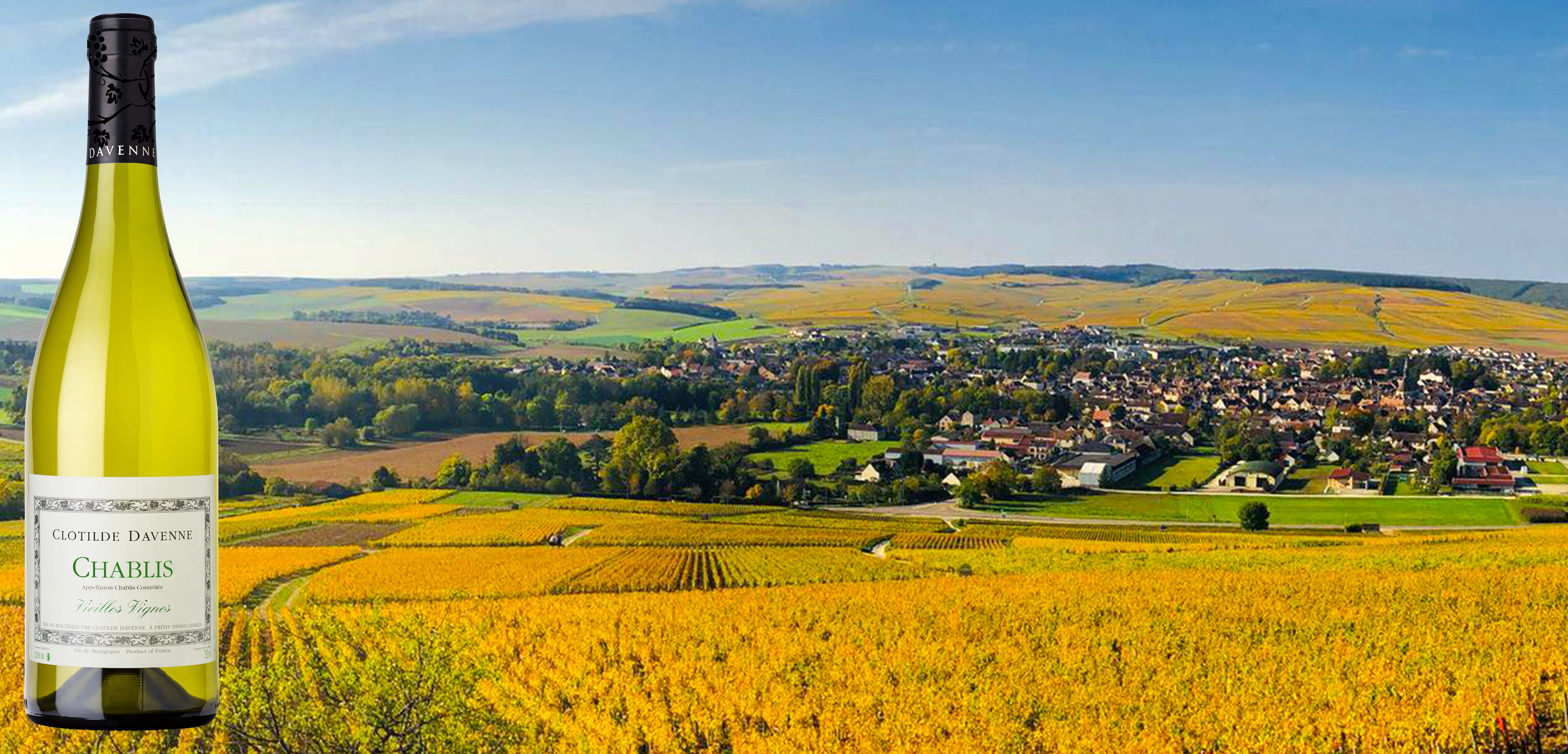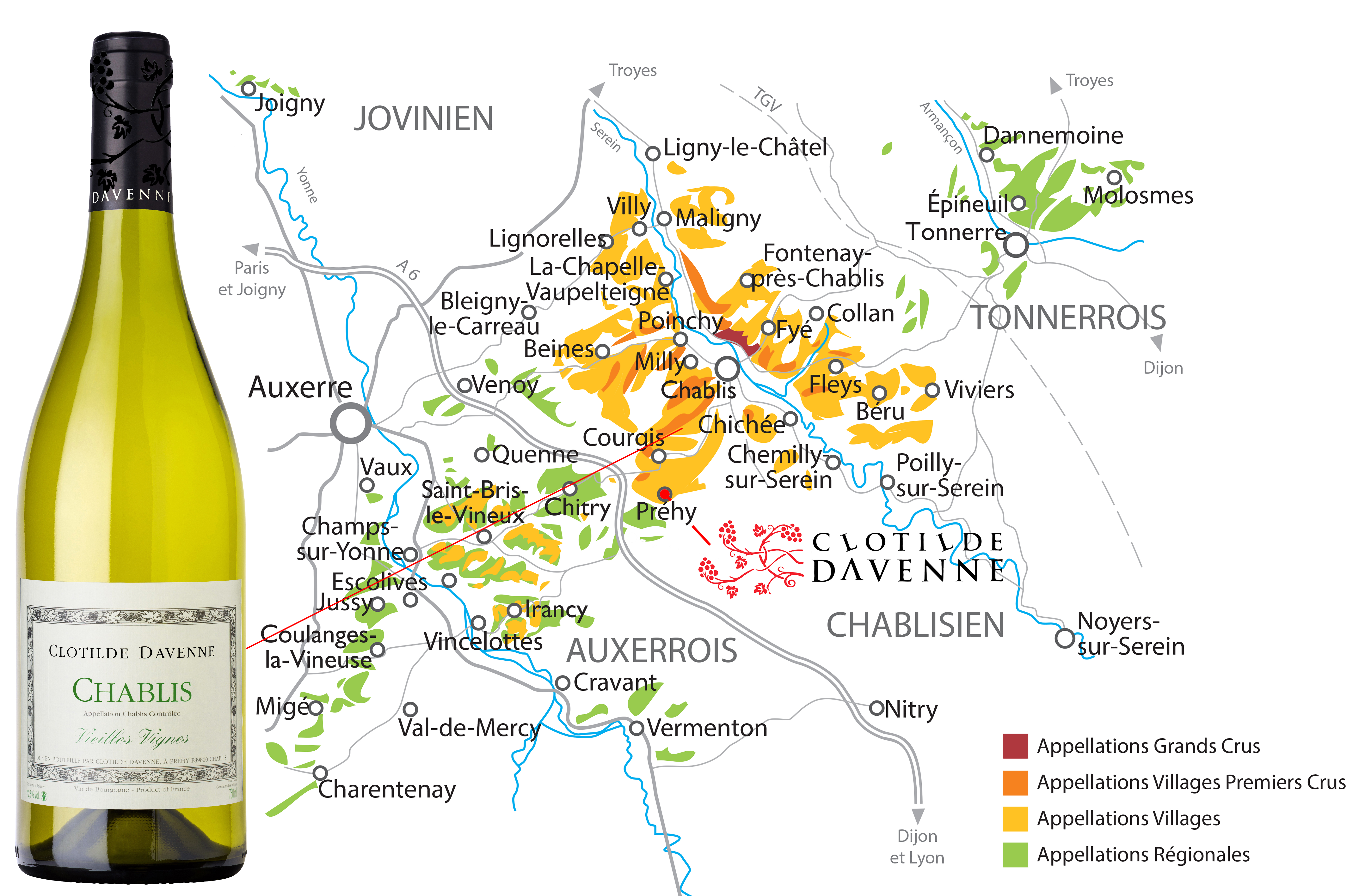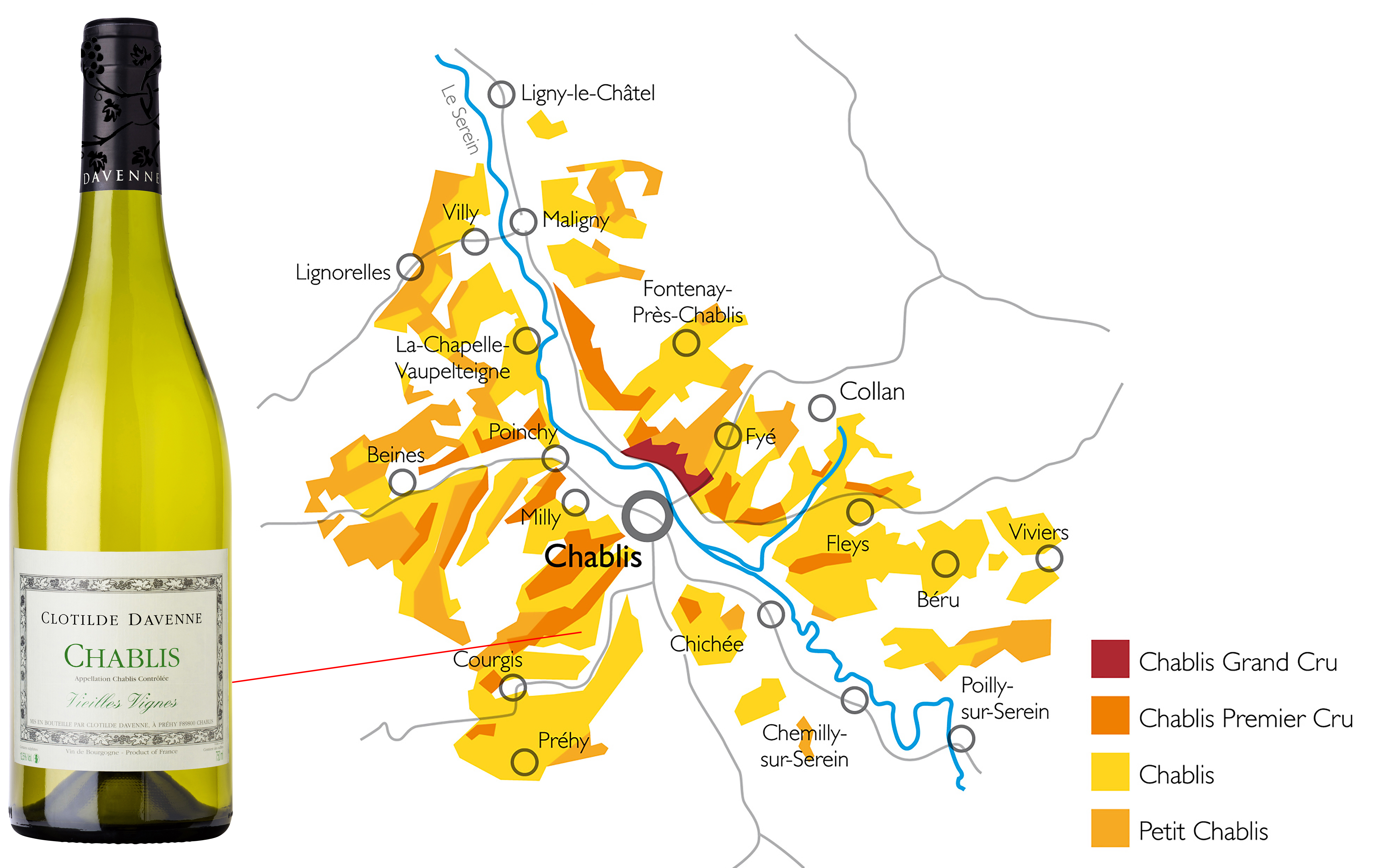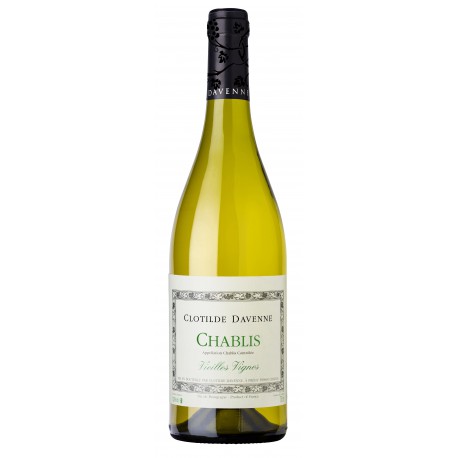- Français
- English
Chablis Vieilles Vignes
Chablis Vieilles Vignes

A beautiful, clear and golden wine with a complex nose of citrus, acacia, wild peach and vine peach. There is great finesse here with a harmonious richness balanced with a touch of acidity. It also reveals the pure minerality of its terroir.
Detailed description
Located near Auxerre in the department of Yonne, the Chablis vineyards lie along a little river aptly named the Serein (“serene”). Vines began to growth here during the Romanera. In the 12th century, the Cistercian monks from the abbey of Pontigny developed its cultivation. The AOC Chablis Premier Cru status was created in January 1938, thus confirming the excellent qualities of this dry white wine which, unlike the wines of some other regions, has held its leading place throughout its history thanks to the high quality of its raw material – the Chardonnay grape.


No French wine-growing area has pinned its faith more firmly on the facts of geology. The main substrate is Jurassic limestone (specifically, Kimmeridgian limestone) laid down some 150 million years ago. The rock contains deposits of tiny fossilised oyster shells which remind us that Bourgogne once lay beneath a warm ocean. Some particularly valuable Climats produce the Premier Cru.


Data sheet
| Delivery | Free delivery in mainland France for orders of 6 bottles and multiples of 6, mixing possible. Outside of France, the most advantageous price is calculated for packaging of 6 and multiples of 6. | |
| A.O.C controlled designation of origin | Chablis : Appellation Village of the Chablis wine-growing region (Yonne). | |
| Grape variety | 100% Chardonnay | |
| Terroir | Kimmeridgien from Jurassic , full of small fossilized oysters from the time when the sea covered the Paris Basin. | |
| Vineyard | The village of Courgis where the vine is located is one of the 20 villages of Chablis. It is south of Chablis, right next to Préhy the village where the winery Clotilde DAVENNE is located. | |
| Vines | Chardonnays planted in 1965 | |
| Exposure | Facing south, slope of 30 to 40% | |
| Vine growing | H.V.E. High Environmental Value | |
| Harvest | Harvest at optimum maturity, destemming, sorting, pneumatic pressing. | |
| Winemaking | The winemaking is carried out in stainless steel vats. The natural fermentations are controlled at low temperatures. | |
| Breeding | The aging is carried out for 8 to 12 months before filtration and bottling. | |
| Aging | 10 years and more | |
| Service | 10 - 12°c | |
| Aspect | Golden robe slightly tinged with green, crystalline, limpid, brilliant. | |
| Nose | Complex nose, with citrus (lemon, grapefruit), white flowers (acacia), stone fruit (peach, vine peach) aromas. | |
| Mouth | Mouth full of finesse, round, slightly buttery harmonized with a tangy frame with iodized notes It expresses the mineral purity of the terroir. The taste pleasure settles in a long finish. | |
| Accords | Serve as an aperitif, or as an accompaniment to oysters, seafood platter, fish terrines, grilled or poached fish, sushi, asparagus, poultry terrines, crunchy vegetables, goat cheese. | |
| Guide Hachette des vins | Guide Hachette des vins 2018 | |
| Tim Atkin Master of Wine | 92/100 |
My wines speak of their land gracefully across the fruit of each grape variety.








